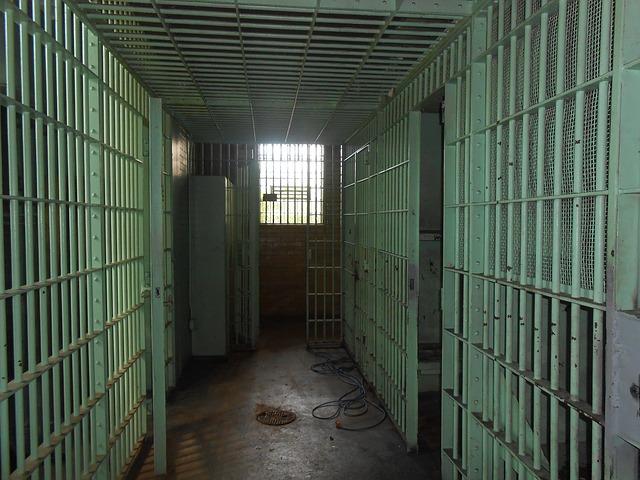Congress passed the Thirteenth Amendment nearly 154 years ago — Jan. 31, 1865 to be exact — by a vote of 119-56. The Civil War would end later that year, but President Abraham Lincoln, compelled by abolitionists, wanted to enshrine the promise of Emancipation in the constitution before southern states returned to the Union.
Wisconsin wasn’t far behind — it became the eighteenth state to ratify the amendment Feb. 24, 1865. While it had always been referred to as a “free territory,” per the Northwest Ordinance, Wisconsin had been home to 90 to 100 slaves at various points, brought by white settlers from southern states. Up until Wisconsin was admitted to the Union, Black slaves worked in lead mines and farm fields across southern Wisconsin. By ratifying the Thirteenth Amendment, it was assumed that Wisconsin, and the country, put an end to the monstrous institution.
But tucked within the promise of freedom was a perverse exemption: the amendment would not protect people serving “punishment for a crime.” Prisoners, in other words, would be forced to work throughout their sentences. To this day, incarcerated people have no constitutional protections from coerced labor or enslavement — Wisconsin is no exception.
Prison labor exploitative, unjust, unproductive toward inmate rehabilitation
In the post-Reconstruction South, the exemption led to the return of slavery “by another name” as Black men and women were arbitrarily convicted, then leased as hired work crews. But the prison industry in Wisconsin has received relatively little attention, despite its reliance on the unpaid and underpaid labor of a racially skewed prison population. Per the 2010 census, 4,042 of every 100,000 Black Wisconsin residents were incarcerated, as were 2,639 of every 100,000 American Indian or indigenous people. These numbers are staggering compared to 416 white people incarcerated per 100,000.
The Wisconsin government operates a Prison Industries Act program, called Badger State Industries, with the stated goal of providing inmates employable skills, vocational training and a path to reintegration after they are released. Through BSI, prisoners produce office furniture, seating, signage and license plates that are sold to other state entities, including the University of Wisconsin system.
The state has acknowledged that it is motivated as much by economic management as prisoner well-being, the late administration of former Gov. Scott Walker noted “as the state’s unemployment rate continues to decline, the need for a skilled workforce will only increase.” Essentially, Thirteenth Amendment exemption allows state governments to control a pool of reserve laborers who may be forced to work when labor markets tighten.
At the federal level, courts have excluded prisoners from protection under the Fair Labor Standards Act. When inmates have sued prison-employers to enforce minimum wage laws or the FLSA it was determined that the relationship between inmate and employer is not economic but “social or penological,” leaving them without wage or working protections. In Wisconsin, all prisoners are denied the minimum wage. Inmates working for a state-owned business, like Badger State Industries, make between $1.41 and $0.79 an hour.
State’s GPS bracelet system inefficient, ineffective in monitoring offenders
“Wisconsin’s slavery ban shouldn’t come with a loophole,” Sen. Lena Taylor, D-Milwaukee, said, referring to the Thirteenth Amendment and its exception. Even in prison, “slavery is never okay.”
Taylor represents District 4, which includes the north Milwaukee zip code 53206 — the most incarcerated in the U.S. She has twice sponsored a “slavery ban,” a bill which would remove the exception from the state’s constitution, formally abolishing involuntary servitude — slavery — as a criminal punishment.
Taylor is right. Forced prison labor is morally abhorrent and recalls in no uncertain terms the origins for white supremacy — that some people have a claim to the life and labor of others that society deems inferior. Faced with slavery, there is no room for equivocation. The Wisconsin legislature must entertain an amendment to Article I, Section 2 of the Wisconsin Constitution—which ratified the Thirteenth Amendment— that bans prison labor permanently.
In a November referendum, Colorado adopted Amendment A, making it one of the first states to remove language from the state constitution that allows for forced prison labor. Wisconsin should follow Colorado’s lead and take the steps to end this practice constitutionally.
Unintended consequences: kids of incarcerated parents suffer most from America’s mass incarceration
The day after the Thirteenth Amendment was ratified by Congress, a Wisconsin State Journal editorial read, “We fully realize that all these [amendments] are nothing without the strong hand and the unfaltering purpose.”
Any movement to abolish prison labor, this current form of slavery, must move with the same unfaltering purpose, the same moral resolve. Until the state constitution enshrines justice for, and not the enslavement of incarcerated people, peace is not an option. The exercise of power — at the polls or in the streets — is the only force that will deliver us from this arrangement.
Sam Ropa ([email protected]) is a senior majoring in geography and anthropology.





















